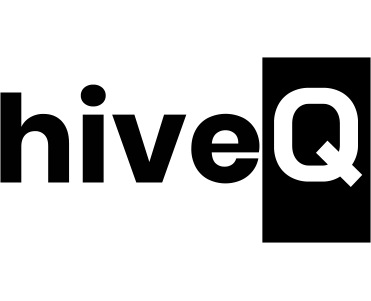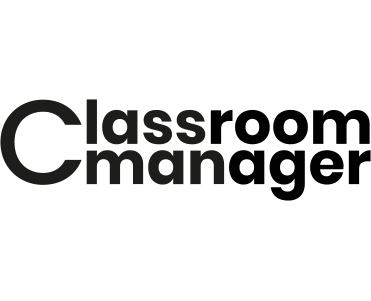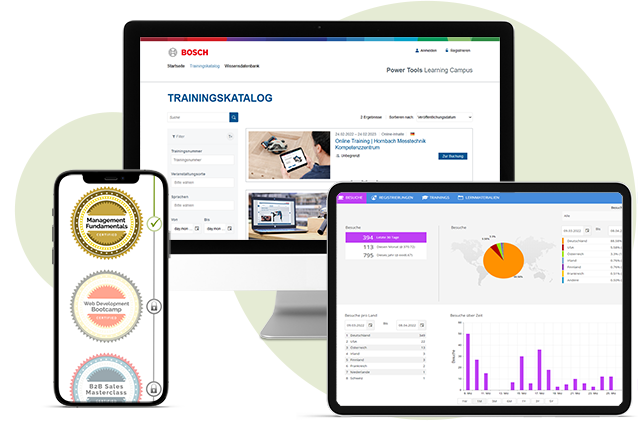Effective learning and a good learning experience are crucial in a constantly evolving world. Technological innovations have wholly transformed teaching and learning methods. Learning Management Systems (LMS) have become an indispensable tool that has permanently changed how training is designed.
But what exactly is an LMS, and when does it make sense to introduce one?
What exactly is a Learning Management System (LMS)?
Definition and meaning of an LMS
An LMS, or Learning Management System, is a (software) application or web-based technology designed to plan, execute and evaluate education and training programs. It serves as a central learning platform for digital training, providing teachers and learners with a structured environment for the learning process.
The tool helps automate processes and offers the user a pleasant learning experience. The importance of LMS in modern education and the corporate sector is invaluable as it enables a flexible, mobile, accessible and personalized learning experience.
Alternative names are Learning Content Management System or Content Management System

The core function of an LMS
An LMS is a comprehensive system that supports creating, managing, distributing and assessing learning content and courses.
Core functions include:
- Managing user registrations.
- Providing learning materials.
- Conducting tests and surveys.
- Tracking learning progress and evaluating performance.
In short, an LMS enables educational institutions and companies to manage a wide range of learning activities efficiently.
Modern training methods of an LMS
In contrast to traditional learning methods that require physical presence in a classroom and access to printed materials, an LMS offers time- and location-independent digital alternatives. It supports self-directed learning and synchronous and asynchronous online training, enabling flexible adaptation to individual needs and schedules. Employees particularly appreciate this for personnel development, as they can easily complete e-learning courses such as compliance training.
Some modern LMSs also support a combination of different types of training, which is referred to as “blended learning”.
Advantages of an LMS
Centralized learning resources
An LMS centralizes all learning content in one place, making it accessible anytime, anywhere, and promoting a consistent learning experience. It eliminates the need for physical teaching materials and allows easy access to courses, curricula, videos and other digital resources. It also allows the learning platform to seamlessly integrate into the existing IT landscape, helping administrators manage complex training programs.
Flexibility and accessibility
By making learning materials available online, everyone can train at their schedule and from any location, which promotes sustainable learning. This year, there are now also a few learning platforms that offer an integrated authoring tool for content creation. This enables even more flexible and mobile course creation directly in the user interface of the LMS. Artificial intelligence (AI) has made it almost child’s play to create e-learning courses.
When selecting your LMS, pay attention to such additional features to ensure sustainable use.
Scalability
LMS platforms are scalable, which makes them ideal for growing organizations or educational institutions. They can be easily adapted to the increasing number of trainees and the growing demand for course offerings. A growing number of platforms also support the integration of SCORM courses via an LTI interface, allowing external content from other platforms to be offered.
Tracking and reporting
Learning Management Systems enable detailed tracking and analysis of learner progress and performance. This makes it easier to identify learning gaps and adapt teaching methods. It is also an important tool for staff development, who can use the data to improve their content when creating courses (e.g. through a different form of learning such as gamification).
Personalization of learning
An LMS supports the adaptation of the learning process to individual learning styles and needs by offering personalized learning paths, adaptive learning and individualized feedback options. Such individualized learning paths help to keep motivation for learning high.
Promoting collaboration
LMS offer features to support collaboration and communication between users through forums, group work and peer assessment, which strengthens the social aspect of learning. Such functions are often summarized under the term “social learning”.
Strengthening customer or partner loyalty
For companies, an LMS can also serve as a tool to strengthen customer or partner loyalty through training and further education, thus potentially increasing sales. Read more about this in our blog article on B2B sales strategy.
Checklist: When does it make sense to implement an LMS?
Types of LMS platforms
There are various types of LMS that differ in terms of their target group, functionality and implementation.
These include:
- Corporate LMS for training and further education in companies.
- LMS/ LXP for customers and partners that promote customer-oriented training and product training.
- Academic LMS specifically for educational institutions.
- Open-source LMS that are customizable and supported by a community.
There is also a distinction between a Learning Management System (LMS) and a Learning Experience Platform (LXP). The latter is a more comprehensive LMS that offers significantly more functions and resembles a learning ecosystem. In most cases, the LXP has developed or evolved from an LMS.
This term (LXP) is mainly used in the context of customer and partner training. Both platforms help to reduce the administrative effort involved in the training program/training content by automating many activities.
Challenges when implementing a LMS
You have now decided on an LMS and are about to introduce it to your company? Then, look at the 8 steps of a successful LMS implementation.
We support you in your LMS decision
In a world where the way we learn and teach is constantly evolving, a Learning Management System (LMS) is a key technology that enables personalized, efficient and effective learning. If you are interested in how an LMS can support your learning goals and would like to experience a customized demo, don’t hesitate to contact us. We will help you find the best LMS.
Start your journey to an improved learning environment today!












